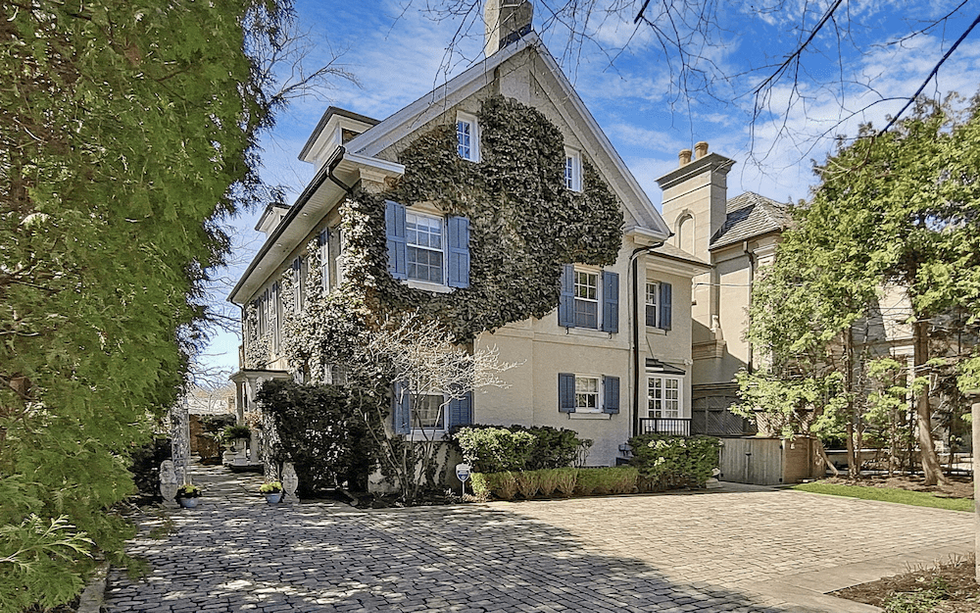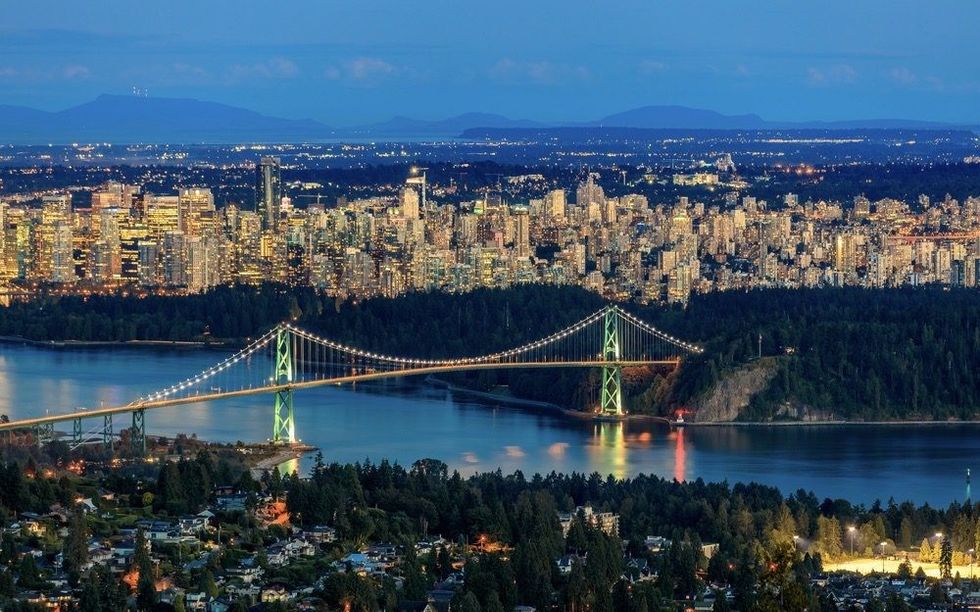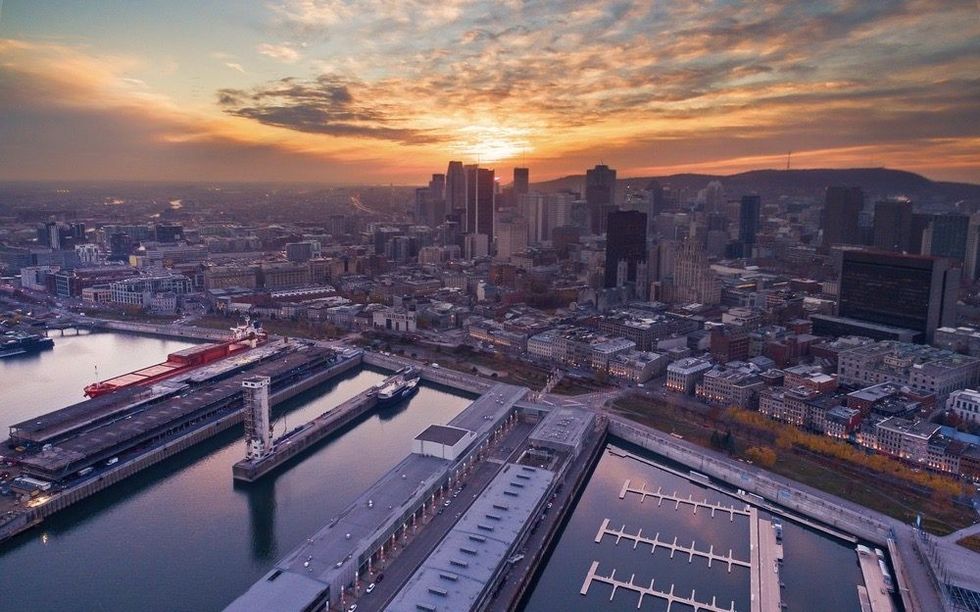Despite a national housing slowdown and an unpredictable trade war with the United States, Canada’s luxury real estate market is in relatively decent shape – at least, in some cities. A report released Wednesday from Sotheby’s International Realty Canada reveals that the country’s luxury urban real estate market was rather resilient in the first quarter of 2025.
It’s no secret that Canada’s mainstream real estate market has seen better days, with both consumer confidence and sales on the decline, thanks to the current sociopolitical climate. But, as the report highlights, “isolated pockets of resilience in the housing market” exist. According to the report, these select luxury markets are “outliers of greater stability – and may still emerge as breakout performers in an otherwise darkening landscape.”
The infamously pricey Greater Toronto Area (GTA) – which just experienced the slowest non-pandemic April for home sales in nearly 30 years – stands out as one such outlier. Here, the ultra-luxury sector (properties over $10 million typically reserved for the 1%) showed significant year-over-year growth. In the first three months of 2025, five properties in this category were sold on MLS – a notable increase from zero in the same period last year. However, luxury home sales over $4 million (condominiums, and attached and single-family homes) decreased by 15% annually. Furthermore, sales of $1 million-plus properties fell 29% in the first quarter compared to the same period last year.

Diane Usher, Managing Broker at Sotheby’s International Realty Canada, tells STOREYS that the report's biggest surprise was the number of GTA properties that sold in excess of $10 million dollars compared to last year, something she says reveals the higher degree of consumer confidence in the region.
Despite economic challenges, the GTA’s ultra-luxury real estate market is strong thanks to wealthy buyers who remain insulated from economic turmoil, highlights the report. High-end homes in low-inventory areas like Rosedale, Forest Hill, and Leslieville are selling fast, and off-market sales over $10 million are rising due to sellers' preference for privacy. According to Sotheby’s, the GTA’s high-end, real estate-seeking set are in luck, with a spring market characterized by buyer-friendly conditions and stable prices across the luxury segment.
Meanwhile, in Vancouver – Canada’s other notoriously expensive city – we’re seeing a different story unfold, something the report attributes to the impact of tariff threats on the city’s fragile economy. Usher points out Vancouver’s economic vulnerability compared to Toronto. “Toronto is the economic engine of the country, so there’s a lot more confidence coming into the Toronto market,” says Usher. “Vancouver, while a major market, is also still essentially smaller than the Toronto market. The Toronto market is huge by comparison.”
Consumer confidence in Vancouver’s conventional and luxury real estate markets took a hit in February, following a brief uptick in January. This led to a notable 48% year-over-year drop in first-quarter sales over $4 million, with both buyers and sellers holding off on real estate transactions, according to Sotheby’s. None of these residential sales involved homes over $10 million, which declined 30% year over year. This represented the most significant annual declines for luxury residential sales out of Canada’s major metropolitan real estate markets. When it comes to the luxury condo market, the $1 million-plus condominium markets in Toronto and Vancouver posted annual declines of 20% and 27%, respectively, in the first quarter of the year.

In Quebec, Montreal’s real estate performance surpassed national trends, something the report attributes to the drop in interest rates and subsequent increase in upward mobility in the entry-level top-tier luxury housing market. Of course, interest rates impact all cities equally, but Usher notes that, her her view and observation, “Montreal is more of a destination in some years over other years – perhaps because of its unique European feel.”
Whatever the case, Montreal saw home sales over $1 million climb 11% year over year in the first quarter of 2025, while properties over $4 million remained unchanged year over year, with eight properties sold. No homes over $10 million were sold. The city also saw its ultra high-end condo market soften, with no sales over $4 million, compared to two during the first quarter of 2024. At the same time, however, condos in the $1 million to $4 million range saw sales increase 27% year over year. This marks the highest rate of increase of the country’s major cities.

In Calgary, both the conventional and luxury markets remained resilient, despite fluctuating oil prices and economic uncertainty. The report highlights how Calgary's record 6.14% population increase in 2024 fuelled continued growth in 2025, with Alberta leading Canada in net population gain in Q1 2025 (28,496 new residents), according to Statistics Canada. This propelled the city’s luxury market. Residential sales over $1 million remained stable, with a 2% year-over-year gain in the first quarter. Meanwhile, one home sold for over $4 million, compared to two sold in the first quarter last year. Calgary’s luxury condo segment saw first-quarter sales up 13%.
Generally, Usher remains optimistic about the state of Canada’s luxury housing market as we roll into the warmer months ahead.
“We are starting to see a sense of stability come back into the market particularly in Ontario with not one but two elections, some challenges and pivots due to trade issues and, not to be dismissed, the weather,” says Usher. “The weather impacts people’s buying habits and it’s been a long winter. We feel the market has shifted ever so slightly after a slow start to the spring. We had some challenges that pushed activity back, but buyers are coming out in greater force this month. We’ve seen a definite uptick in the market just in the last 10 days.”





















